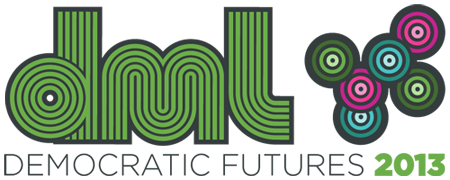21C: Who Gets to Learn How? : Youth as Actors and Subjects in Civic Education Contexts
Schools have long been expected to play a primary role in the development of young people’s civic consciousness. Almost a century ago, Dewey’s educational philosophy provided the foundation for new understandings of “connected and participatory learning.” He promoted a vision of the classroom as a site of democratic participation, open debate, and free expression directly connected - and relevant - to children’s lives outside of the school.
Over the past 25 years there have been several cycles of prediction that new technologies could contribute toward this goal. As they became increasingly accessible to young people and educators, we hoped that these tools would catalyze radical changes in the organization and structure of children’s education, the relationships among children and the adults around them, and children’s status as actors in the political and social lives of their communities. However, these predictions have repeatedly outpaced the impact these tools have had on children and their status as actors in their own education and development.
A wide range of research suggests that we have persistently overestimated the ability of digital tools to reconfigure relationships among children and the adults and institutions that care for and support them. Rather than catalysts of change, digital tools may be better understood as motivators for change, which can only be sustained or scaled up when comparable investments are made in training for educators and youth advocates, and policy reforms that create the spaces, time, and incentives that would support these kinds of change.
This panel will respond to the conference theme, “Envisioning Civic Education in the 21st Century.” It brings together experienced leaders in educational research, advocacy, and practice, who will draw on recent work to consider how current policy contexts are both promoting and impeding young people’s opportunities to use digital tools to drive their civic education and engagement.
Panel participants include:
- Jim Diamond, Research Associate at the Center for Children and Technology, part of the non-profit research and development group Education Development Center, Inc. (EDC/CCT). His talk will draw on his experience observing students using digital games to support reasoning about social change and civic action.
- Julie Keane is a Senior Research Associate at VIF International Education. Her talk will draw on research with young people creating digital autobiographies and seeking to represent their communities using digital tools.
- Meghan McDermott is the Executive Director of Global Action Project, a youth media organization that provides media-arts and leadership education for youth. Her talk will draw on her long experience with young people using digital media to tell stories about underrepresented youth and their efforts to cause political change.
- Shelley Pasnik is the director of EDC/CCT. Her talk will focus on obstacles to integrating digital media into all children’s early learning experiences.
Katie McMillan Culp, director of research at EDC/CCT, will act as discussant for the panel.



